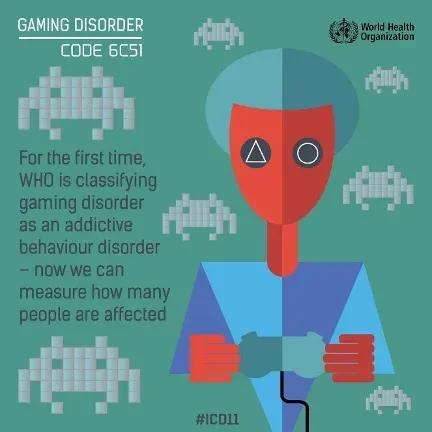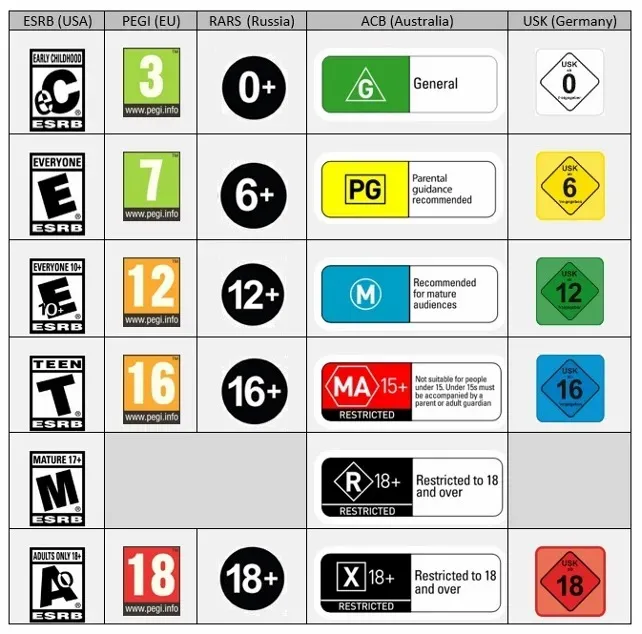Dialogue with Fan Ziyi: Do game producers dream of "electronic heroin"? (1) | Around the Furnace · CUHK

Fan Ziyi studied philosophy at Sun Yat-sen University for undergraduate studies and theology at the University of St Andrews as a graduate student. After graduation, he did not choose to continue his academic research work, but returned to China to devote himself to the video game production industry. He has worked in the industry for seven years. He has participated in projects ranging from large-scale commercial games to small and medium-sized independent games. He is currently working as a technology planner for the pre-research project of a leading two-dimensional game company in Shanghai.


From the "electronic heroin"[1] written by Guangming Daily in 2000 to the "spiritual opium"[2] written by the Economic Information Daily in 2021, in the two decades that video games have been popularized in China along with the Internet, it has In the hearts of the mainstream media, it seems that it has always been a beast that feeds on the spirit of human beings. However, the revenue of the domestic video game market in 2020 will exceed RMB 270 billion, and the number of game users will reach 665 million [3]. With society's views on video games so divided, what does Fan Ziyi think of his works and the controversies about them?

1
Those Controversies About Video Games: Addiction, Censorship, and the "Spiritual Opium"
Tong = Tong Junbo
Fan = Fan Ziyi
Tong|Most people probably don't know what the job of "video game production" is. What is your daily work like?
Fan | My current position is "Technology Planning". With the advancement of the times, the game production industry has gradually become more complex, and the position of "technology planning" has emerged. Now many people want to make higher-quality games with "3A" as the standard, and higher-quality games will definitely have more complicated production processes, so some people need to help sort out these processes and integrate the professional skills of other positions. and opinions. Specifically, I am a bridge between planners and programmers; I want to design some complex systems, which can not only meet the needs of the gameplay in the planner's mind, but also facilitate the understanding and implementation of these contents by the programmers.
Tong | Over the years, major domestic media have characterized video games as "spiritual opium" on various occasions. How do you feel about this assessment?
Fan | In China, the word "opium" has a very negative connotation, right? Therefore, this depiction of the media is actually an extreme rhetoric of their so-called "games make people do not do their jobs properly". However, if we generalize the concept of "not doing a proper job", it is not difficult to find that there are actually many forms of "not doing a proper job".
I think the term "spiritual opium" is alluding to the highly addictive nature of video games. In order to attract players, there are indeed many mechanism designs supported by behavioral psychology behind video games. These designs make people willing to invest more time and generate repetitive behaviors corresponding to the mechanism. Probably because there have been some extreme cases of excessive addiction to video games. After these cases came out, video games left a negative impression in people's minds.
I go on to say a few words about the addictive potential of video games. Addiction can be broken down into several layers. First of all, part of the "addiction" comes from the good entertainment experience the audience gets. For example, the visual effects and sound effects of a certain game are particularly satisfying, or it can satisfy people's desire to vent, or can convey a sense of Pleasant sense of power and substitution, like I'm playing a strong, cool character. These are generally good experiences. Good experiences actually exist in many places. For example, there are many moving elements in dramas or movies. These can be good experiences, but they are not necessarily addictive.

Moving further down, we discuss a deeper level of the phenomenon of "addiction". Addiction is based on "echo loops." To understand the "echo loop", you need to talk a little bit about behavioral psychology. There is a well-known "Skinner-box" experiment in behavioral psychology. The experimenter trains mice to press buttons and gives them some random behavioral patterns for the mice, such as pressing the button multiple times in a row. award. Through this guidance, the experimenters found that the random reward mechanism was easier to guide the mice to develop button-pressing behavior than the fixed reward form. From this point of view, behavioral psychology is controversial, because the presupposition of its research is to completely eliminate the spiritual emotions and dignity of people or creatures, and only focus on what the surrounding environment does to people. Information input can make people produce what kind of output, so it can effectively control people's behavior. However, this mechanic is widely used in loot-box and card draw games. It is also because of such a pipeline that players have a stronger desire to play, which also generates greater commercial benefits for manufacturers.

Back to the concept of "echo loops". The "good audiovisual experience" we discussed at the beginning is actually a relatively easy method to fail in guiding players to spend more time playing games. When we make games, whether it is a stand-alone game or an online game with long-term operation, an important factor to consider is the ratio of the content produced by research and development to the content consumed by the players, which requires careful calculation. In other words: how much content and experience can we deliver to players, and how much content and experience can players consume? After a little experimentation by the developers, we quickly realized that this kind of audio-visual experience is very easy to fail: players who have experienced a certain level of good audio-visual experience will soon get bored, not so much anymore. Excited, and therefore not much motivation to continue playing the game.
However, we have found that some long-term, "reverberating loop" based mechanics are very prone to addictive behavior in players. For example, every time the player kills the number of enemies, he will be upgraded. After each upgrade, he will have an opportunity to learn new skills, and then the new skills learned will strengthen the efficiency of the player to kill enemies. All games, in the long run, are such a resource management-like gameplay. Players will find the balance of input and output mechanics between the TA and the system, and learn how to maximize the efficiency of the game. This process of maximizing efficiency, or getting output from the system and putting those outputs back into the system, makes it very easy for players to stay. These "echo loops" are very common in games. Whether the game is well designed and fun is closely related to whether the various echo loop processes in its mechanism are well connected. But at the same time, a game is not addictive, and it is also very closely related to this mechanism.

Tong|We often see in the news many examples of teenagers being addicted to playing online games; for example, junior high school students are addicted to games such as King of Glory or League of Legends. In your opinion, the phenomenon of "teenagers addicted to games", aside from personal and family factors, is probably caused by the reverberation loop mechanism of the game that guides him step by step?
Fan | Indeed it is. From the point of view of game category alone, MOBA—that is, the King of Glory and League of Legends just mentioned—belongs to the category with its own very good “echo loop” mechanism. Because this category is a multiplayer game after all, it is a type that generally tends to provide game content between players. As a player, I'm not just playing with this system, but more importantly, I'm playing with other players. Because the game system developed by the developer can be exhausted, and for most people, after exhaustion, he has no extra space, and he will lose interest.
However, certain types of games, such as multiplayer games, especially competitive multiplayer games, have a relatively high skill-ceiling (the upper limit of game technology), so that many players with good skills will still play in the game. There is room for exploration in the game. In addition, multiplayer games are also supported by their own social systems, and there are calculation systems such as "qualified matches", which make it easier for players to match opponents of the same level as themselves. In this way, no matter what game level the player is in, the player can get a game experience that is almost equal to the competitive level of the TA. Under the action of these mechanisms, such a game will be a very long-lived game.
Tong|As a game developer, you will naturally design and practice different types of echo loops. But has the company or government asked you and your colleagues to devise any measures to deal with addiction? Something like a "reverse echo loop" but doesn't affect the gameplay itself?
Fan | The problem of addiction is still regarded as a behavior. Therefore, whether it is the guidance of policies, or the countermeasures of developers or publishers, it is also a behavior-based countermeasure as a whole. That is to say, instead of thinking that "developers should find a way to make players not addicted", the current thinking should be "players can't play for so long, they must be addicted after playing for so long"; this is a bad behavior , what we have to do is to stop this behavior. Therefore, what is done now is more about limiting behaviors from the player's side; the most direct method now is to limit the game time, while restrictions on play behaviors from game design are rarely suggested and adopted.
Tong | In 2018, the WHO officially listed "gaming disorder" as a mental illness. How do you feel about this?
Fan | First of all, I want to explain that I don't have much say in this topic, because I don't know much about the field of pathology. So what I'm going to say next is just an opinion shared from the perspective of a non-medical, psychiatric professional.
In this case, gaming addiction is defined as "disorder". Then "disorder" must have a corresponding phenomenon or concept "order", right? One state is considered normal before the other states are considered abnormal. But what "normal" really looks like, "how a standard, norm-compliant person should behave" is a difficult thing to define. So if it is difficult to define the standard, then it is abnormal to say that "game addiction" is abnormal. I personally think this is still open for discussion. In addition, even if I define an abnormal behavior or state, how do I define whether a person belongs to such a abnormal state? This is on another level.
When the WHO first issued this regulation, I also read the file, which wrote some defining criteria such as "when it meets how many standards, how many probability it is considered to be disorder". But I still think it's a pretty ambiguous thing overall. Of course, academic discussions are academic discussions, and whether a phenomenon is "abnormal" requires its academic discussion and definition. But the core problem of this is that it may derive some power relations, which is more worthy of vigilance. When an "abnormality" is defined, someone will have the right to speak of "defining abnormality". Then those who have this right to speak can gain something extra by exercising such a right. This is what worries me more.

Tong|Recently, the State Press and Publication Administration issued a series of policies on restricting the time for minors to play online games, so that minors can only have a maximum of three hours of game time a week. Another tightening after adults play a maximum of 1.5 hours a day. How do you view this policy adjustment?
Fan | It may not be the same as what the masses expected. In fact, this policy adjustment has little impact on our industry. After all, underage players do not provide a lot of profits to game companies. In addition, players have a life cycle, for example, from teens to thirties. The life cycle of player identity is different for everyone, some people may be longer, and some people may start a little earlier.
Looking at this policy regulation from this perspective, there may be some interesting situations. For example, the current generation of children, if the current and future policies fundamentally make the life cycle of these children's players start later, then when they understand the game work when they are adults, they are likely to be in a different situation from ours. For example, we think there are some childhood memories. Now many game manufacturers will use this "childhood memory" to make a fuss: the things you played when you were a teenager, they will do it again when you are 30 years old. Let you continue to play these old products. But for our new generation of young people, they may not have played anything when they were teens, so this kind of "memory killing" product strategy for old users may not be easy to go through again.
From the perspective of specific policy implementation, I think it is quite difficult to predict what effect this policy will achieve in the end. Of course, online games that continue to operate will definitely have stricter identity censorship, but in fact, when it continues to be implemented, there will still be a lot of gray space below, and there will definitely be various kinds of "seeking space in the cracks". the behavior of. But maybe this part will become a common memory of this generation of young players. (laugh)
Tong | In August this year, the Economic Information Daily, the head of Xinhua News Agency, published a report titled ""Spiritual Opium" has grown into an industry of hundreds of billions of dollars." Within hours of the report's publication, major domestic game stocks plummeted. , the largest decline was 20%, and the total market value once evaporated 400 billion yuan. As an industry practitioner, what impact has this incident had on you? How do you feel about this event?
Fan | has little impact on our general practitioners. The market value of listed companies has fallen, and the most affected are investors and company management. I think this matter is just a reflection of the operating mechanism of the policy. Before a major policy regulation is implemented, some rumors will be released before and after, and it will not be really implemented until the end; this will take some time to brew, and it will not be a very sudden thing. In fact, that article was sent out to test the water, or to see the public's reaction, and then I knew that everyone's reaction was more intense. Shortly after that article was published, the previously mentioned policy of restricting the playing time of minors did come down. So I feel that the Xinhua News Agency report is just a tentative, or a manuscript that simply probes the wind, and has no guiding significance.
Tong|In foreign countries, many countries and regions have established their own video game content auditing and rating systems, such as the ESRB in North America. Under this system, when people buy games in e-commerce retail stores, they need to show their ID documents to prove that their actual age meets the purchase age required by the game rating standards. However, China has not had a systematic game content audit and rating system, so that teenagers can easily access many video games whose content is not suitable for their age group. What do you think about the role of the grading system on adolescent mental health? Do you think there should be a similar video game content audit and rating system in China?
Fan|Before I start to answer, I must admit that I don't know much about the domestic video game content auditing mechanism. These are mainly things that friends who do publishing need to consider, and they will be clearer.
For the follow-up question, I will discuss it from two perspectives. First of all, from the perspective of a practitioner, as a person who produces content, if there is a set of norms that can tell me what can be done, what cannot be done, or how certain things need to be done limit, this will help me a lot. Because what we don't like about the domestic audit mechanism in our industry is that its regulations are very vague, so everyone will always be restricted in some unexpected places. The developers' thinking is that if this auditing mechanism can be written clearly enough, our own work will be easier. It would be helpful for both developers and publishers if we had a clear idea when we created content to what extent a piece of content could only be sold to a certain age group.

Back to the consumer side. I think that "restricting consumer access to content" is actually a bit more complicated than I thought. First of all, from a macro level, I ask this question: Does the government want to enforce strict content restrictions so that people of inappropriate ages cannot access inappropriate content? From the perspective of the small industry of video games, foreign countries have indeed done a good job of auditing in this regard. But let's widen our perspective a bit and consider all consumer products in the question I posed above.
In restricting consumers’ exposure to inappropriate content, there are also good examples of restrictions and guidance in China, such as restrictions on drugs: we Chinese will wonder why Americans are so easy to get drugs, and Americans will in turn I wonder why Chinese teenagers have so much unrestricted access to tobacco, alcohol, and lighters. So in terms of implementation, in fact, each country has its own standards, but everyone seems to have a moral and spiritual consensus, that is, there are certain things that are not suitable for young people, and a series of rules have also been set. However, the actual strength of implementation varies greatly from place to place. So how should this review mechanism be implemented in the end, I personally have not seen a good example.

On the other hand, I don't think it's easy to draw conclusions about whether this audit mechanism should be implemented or not. We can take the example of drugs just now. We know that states in the U.S. that legalized drugs ended up seeing higher drug use rates. The government has made corresponding supervision, and the government has also given clear regulations to allow consumers to legally and with restrictions to access drugs, but the long-term results of this policy do not seem to be as good as everyone thinks.
Back to video games. If this topic is extended, the question is "is the content of video games hurting teenagers?" I have no comment on this.

Note: [1] Guangming Daily, "Computer Games Target Children's "Electronic Heroin", 2000 [2] Economic Information Daily, ""Spiritual Opium" Has Grow into a Industry of Hundreds of Billions", 2021 [3] "2020 China Game Industry Report"
Text | Tong Junbo
Figure | From the Internet
WeChat editor | Li Jingxuan
matters Editor | Marks
Reviewer | Ronnie
Around the Fire (ID:weilu_flame)

The pictures in the text are not used for other purposes without consent
You are welcome to comment below the article to exchange discussions with the Ios team and other readers
If you want to know about the fireplace and read more articles, please pay attention to this official account and click the corresponding menu column on the official account page


Like my work? Don't forget to support and clap, let me know that you are with me on the road of creation. Keep this enthusiasm together!

- Author
- More